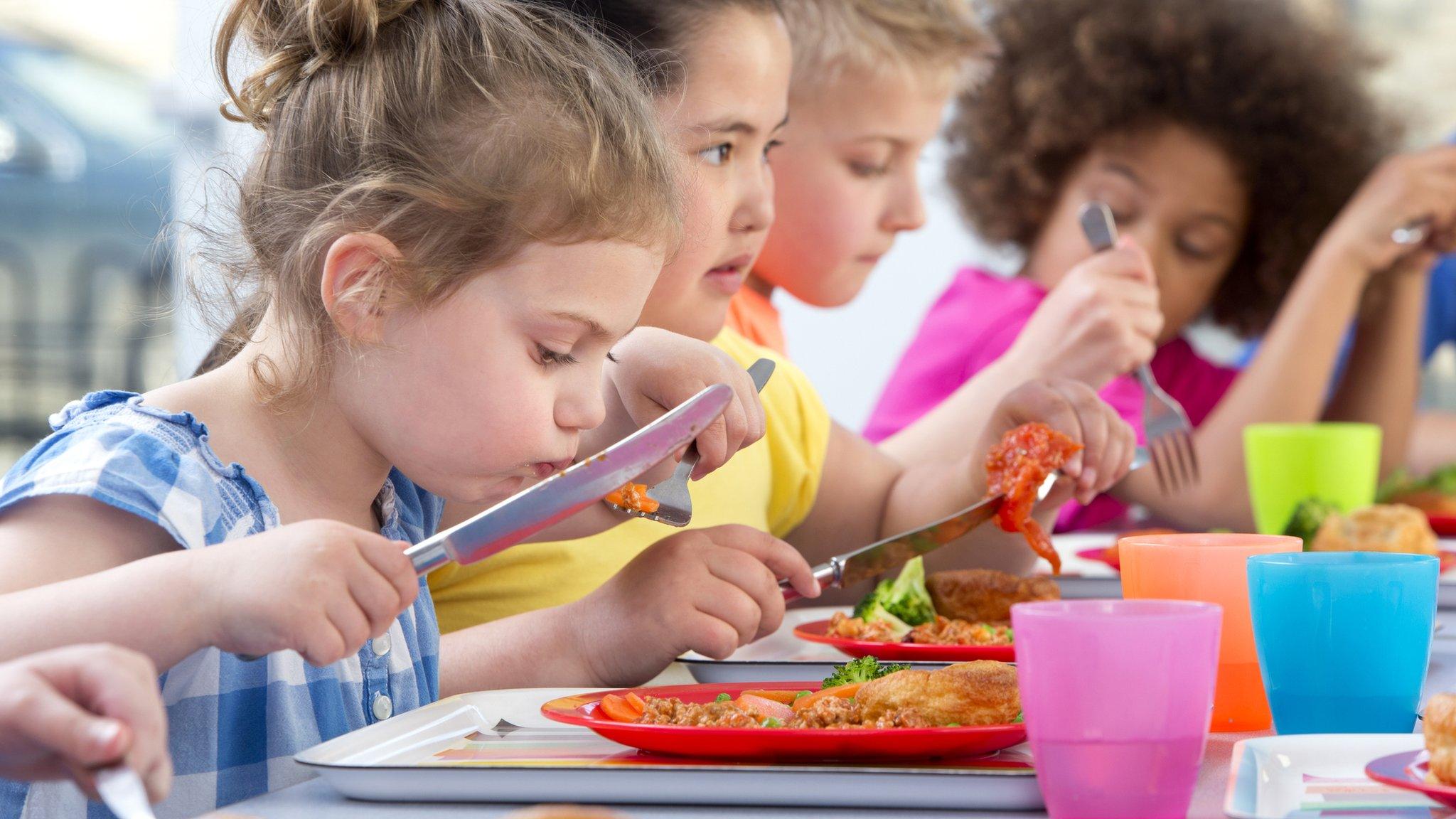Will my child get free school meals this year?
- Published
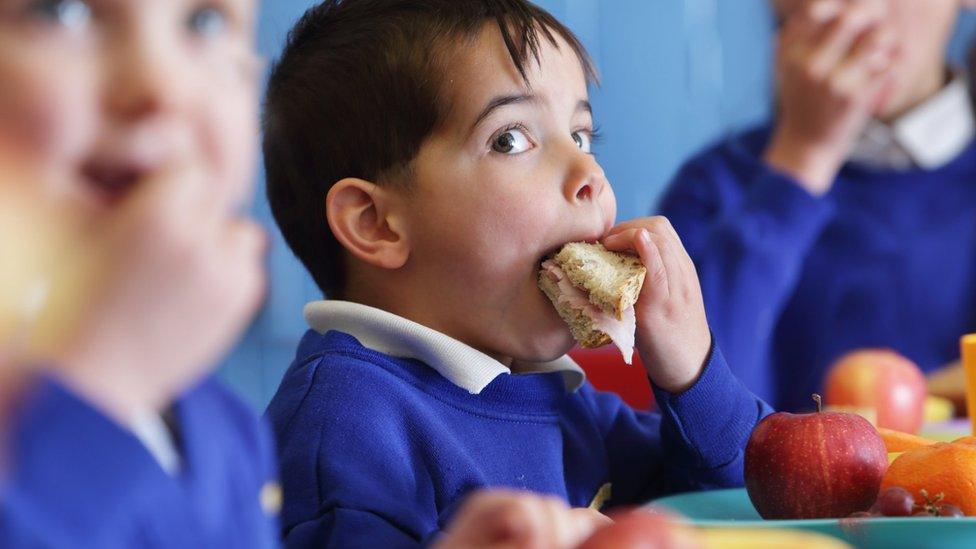
Currently all children in P1-P5 can get a free school meal
The Scottish government has been urged to extend universal free school meals to all primary school children as the cost of living crisis deepens.
Ahead of the last Holyrood election the SNP pledged to provide a free breakfast and lunch to all P1-P7 children by August 2022.
However, the rollout of the policy has been delayed.
As the new school term begins for many pupils this week, many P6 and P7 pupils will not be entitled to free meals.
Campaigners are calling on the government to implement the free school meals policy "as soon as possible", with families facing spiralling energy bills and increased food costs.
The Scottish government said it was planning to extend free school meals to all primary school pupils during this academic year.
What was the SNP's commitment on free school meals?
In November 2020 - mid-way through the pandemic - the SNP announced plans to extend free school meals to all children in primary schools in Scotland.
At the time they were available to children and young people whose parents were in receipt of certain benefits, external and all P1-P3 pupils.
But the issue of child poverty and hunger was at the top of the news agenda after a high-profile campaign led by footballer Marcus Rashford.
In a speech to the SNP's virtual conference, Deputy First Minister John Swinney pledged to fund breakfasts and lunches for all children in P1-P7 from August 2022.
"We will not leave a child at the mercy of a Tory chancellor, just because they are in P4, P5, P6 or P7," he said.
John Swinney made the pledge in a speech to the virtual SNP conference in 2020
His announcement came three months after the Scottish Conservatives made a similar policy pledge. , external
The Scottish Greens - now in government with the SNP - said free school meals should be extended to children at every stage of education, including high school.
Has the government delivered the pledge?
Universal free school lunches have been extended to children in P4 and P5 since the SNP retained power in the May 2021 election, saving families an average of £400 a year.
However, their timetable to include P6 and P7 children in their plans by August 2022 has been quietly dropped.
The Scottish government has previously said the policy will be rolled out to older primary pupils "later in the parliamentary term".
A spokeswoman told BBC Scotland: "We continue to work with our partners to plan for the expansion of free school meals to P6 and P7s during the academic year 2022-23."
In the meantime, £30m has been allocated for investment in extending school kitchens and dining rooms ahead of the anticipated increase in demand.
"This is in light of feedback from local authorities that it would not have been possible for all schools to increase the capacity of their kitchen and dining facilities within the original proposed timescale," the spokeswoman added.
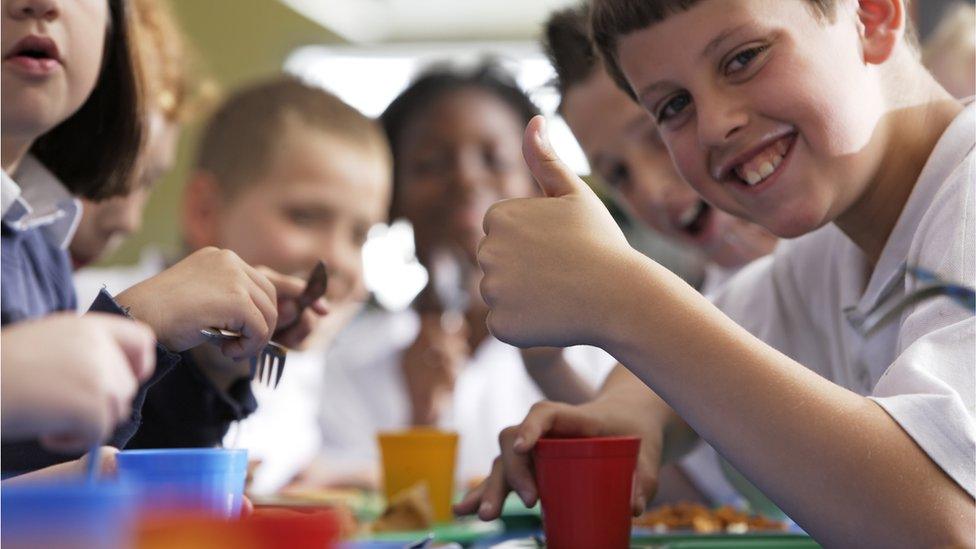
Alison Ann-Dowling, a Labour Co-op councillor with Renfrewshire Council, said councils were ready to implement the policy - they just needed the funds from the Scottish government.
"The only thing that's holding it up is confirmation from the SNP of how it's going to be funded," she said. "It needs to be financed by central government. Councils don't have the funding because of 10 years of cuts to budgets.
"Given that we're in the grip of the worst inflation and cost of living crisis in living memory, surely there can be no further delay."
The Scottish government spokeswoman said it was developing plans to deliver free breakfasts to all primary and special school children "by assessing demand and capacity to best meet the needs of children and families".
She added: "We have also provided local authorities with £21.75m to deliver free school meals during the school holidays for eligible families on the basis of low income."
Should all primary school children receive free school meals?
An increase in child poverty, the cost of living crisis and the ongoing impact of Covid is contributing to the food security issues, according to Bruce Adamson, Scotland's children's commissioner.
He said thousands of children did not have consistent access to sufficient affordable, nutritious food.
"Children who experience food insecurity are more likely to experience poor health, obesity and malnutrition, as well as other challenges to their physical and mental development," he said.
"Food insecurity also affects educational performance - put simply, hungry children find it difficult to learn."
Free school meals for all primary school pupils would reduce the stigma that sometimes prevents families from claiming the entitlement, he said.
He said it would also help reinforce the understanding of food as "a human right, not an act of charity".
"We have long accepted the universal provision of the rights to education and healthcare and children's right to food should be fulfilled as a necessary universal good in the same way," he said.
"The Scottish government need to prioritise rolling out universal free schools meals to all primary-aged children as soon as possible."
What about secondary school children?
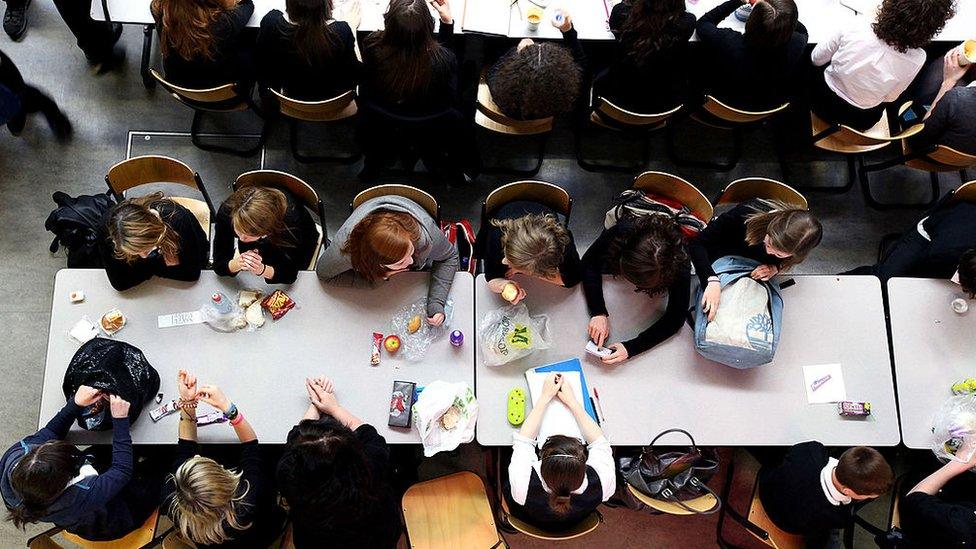
MSPs are considering a public petition, external calling for universal access to free school meals for all children in nursery, primary and secondary education.
It was created by Ms Ann-Dowling, who said: "Hunger doesn't recognise an age limit, therefore the Scottish government should not discriminate against tackling school-day hunger on the basis of age."
It has received the backing of the children's commissioner, who called on the government to tackle the barriers discouraging secondary age children from having free school meals.
"While free school meals are an important lever to tackle child food poverty in Scotland, we know that in secondary schools there is evidence of declining uptake of free school meals, with children choosing to leave school at lunchtime," Mr Adamson said.
"Secondary school pupils have told us that there are several barriers to taking up free school meals, including lack of awareness of eligibility for free school meals; stigma; quality of food and portion sizes; lack of choice; and the adequacy of school dining spaces."
In response, John Swinney has said the government is committed to "piloting approaches to universal meal provision in secondary schools".
- Published10 August 2022
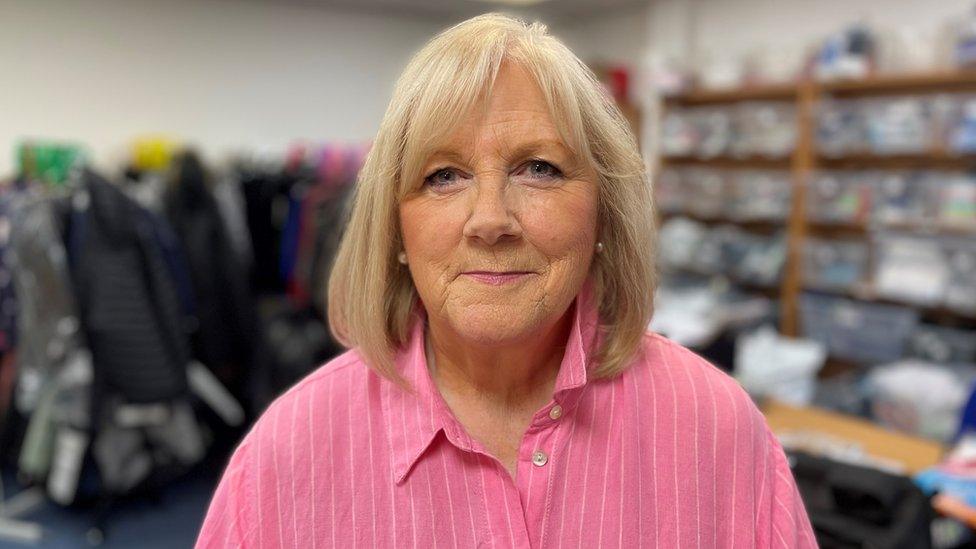
- Published6 August 2022
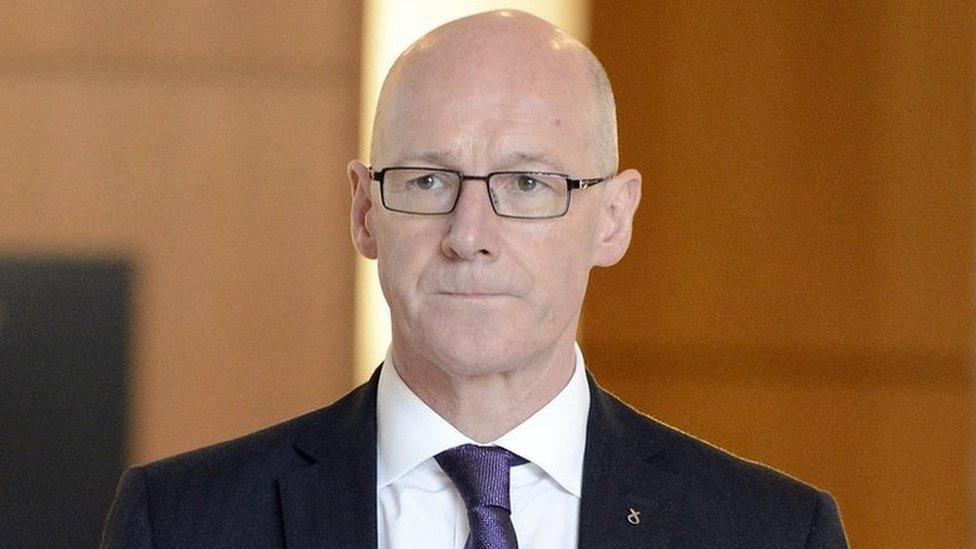
- Published28 November 2020
